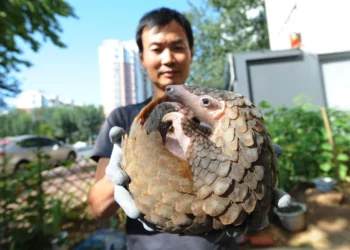Is your dog tired so quickly after playing these days? Do his gums look whiter than usual? Is he panting a lot when nothing is wrong? There is a chance that your dog has anemia. Anemia is simply anemia, there is a shortage of red blood cells in the body.
Reasons
A deficiency of red blood cells can occur for several reasons. Some of the causes are malnutrition, blood loss as a result of an accident, internal bleeding, and poisoning by rat poison. Another cause is too little production of the hormone Erythropoietin, this hormone normally stimulates the production of red blood cells.
This is the result of kidney disease. Anemia can also develop when a dog owner gives his dog paracetamol when he thinks it will help him with the pain. This drug is poisonous to dogs! In addition to anemia, paracetamol can also cause liver and kidney problems.

Symptoms
Hemoglobin is an iron-containing substance that is stored in red blood cells. This substance binds oxygen and then releases it again. When there is a shortage of red blood cells, there will also immediately be a shortage of hemoglobin. Oxygen deficiency occurs in the tissues and organs.
Reading Suggestions; Black Dog Names; 400+ Names for Black Dogs
- Weakness and panting due to a lack of oxygen in the blood and body tissues
- Mucous membranes look pale, including the gums
- Increased heart rate. The heart tries to make up for the lack of oxygen in the blood by pumping it around faster
- Sudden anemia, caused by accident, leads to weakness, difficulty breathing, and sudden collapse.
Therapy
The causes of anemia can be treated in several ways. When poisoned by rat poison, an antidote is administered. An IV can also be given to stabilize circulation and blood pressure. In very severe cases, a blood transfusion is required.

Blood transfusion
The degree of anemia is indicated by a hematocrit value. In dogs, this is normally between 0.40 and 0.50. If this is lower, a blood transfusion will be necessary. Blood in a transfusion comes from a dog’s blood bank.
This actually works the same as with humans. In dogs, however, there are no antibodies that cause transfusion reactions. It is recommended that the blood types are matched. Dogs that have previously received blood can develop antibodies against a certain type of blood.
Species, the different causes of anemia
Tumors in the spleen
The spleen’s job is to store red blood cells before they are released into the bloodstream. A disease/tumor of the spleen can therefore cause the spleen to be unable to produce enough red blood cells. Tumors in the spleen are fairly common in older dogs.
A tumor in the spleen can sometimes be felt in the lower abdomen. You will also be able to observe the regular symptoms of anemia. A diagnosis must be made quickly. When a tumor is there too long, it can bleed. As a result, a lot of blood ends up in the lower abdomen and the dog can collapse completely due to sudden blood loss.
If it is diagnosed that there is a tumor in the spleen, the vet will often suggest removing the entire spleen, so you can be sure that no small pieces of tumor remain. With some adjustments, the dog will still be able to lead a fairly normal life without a spleen.
rat poison
Rat poison is an anti-clotting agent. The poison prevents the production of vitamin K, which is necessary for normal blood clotting. It is quite often ingested by dogs because the poison has an attractive appearance. Even dead animals that have
the poison in their bodies are sometimes eaten by curious dogs. You only notice the first signs of poisoning after a few days because the body first continues to use the remaining supply of vitamin K. When your dog becomes ill you will have to be very quickly, otherwise, death will follow.
So if you think your dog has eaten rat poison, don’t wait for the 1st disease symptoms. You may already be late!

The symptoms are slightly different from what is common in anemia: Vomiting and diarrhea with blood, bruising under the skin, and blood in the bladder+brain+respiratory system. An IV, blood transfusion, and supportive medication are often needed to get the animal back to health. Treatment with vitamin K will be given for 1 to 3 days until the vitamin is back to normal levels.
Autoimmune Hemolytic Anemia
This disease develops suddenly after an infection or a stressful event. It can probably also be the result of the use of certain medicines, but this is not yet completely clear. The symptoms are pretty standard. The diagnosis can be made with a blood test.
This will show a low concentration of red blood cells and a high concentration of liver enzymes and bilirubin. The latter is because hemoglobin is recycled and the liver is extra burdened.
The treatment consists of drugs that suppress the immune system and thus the activity of antibodies. In some dogs, these drugs are very effective and the dosage can be reduced after a certain time. Other dogs will have to take these drugs for life.









